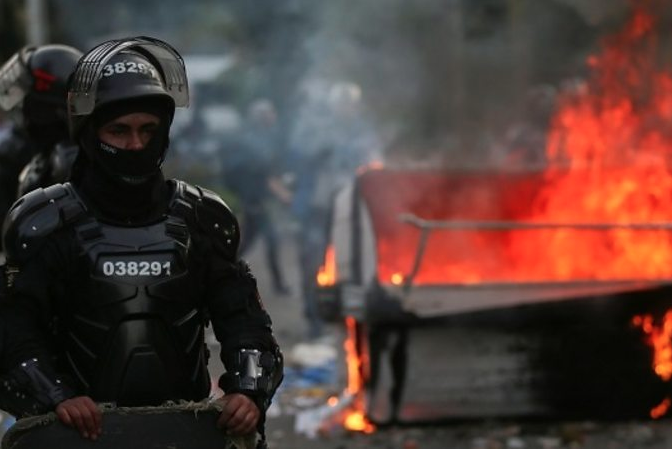
Sep 18, 2020 | News
Today, the ICJ called upon the responsible authorities to ensure that prompt, transparent, thorough, impartial and effective investigations are carried out of allegations of extrajudicial killings and other serious human rights violations by the Colombian police during recent street protests.
The ICJ stressed that any official responsible should be prosecuted and brought to justice and victims of any violations be provided an effective remedy and reparation.
From 9 September to 10 September 2020, mass protests against serious human rights violations by Colombian police took place in Bogota, following the death of Javier Ordóñez. Ordoñez died in police custody after he had been subjected to severe ill-treatment, including by prolonged taser shock.
The protests were met with acts of unlawful, unnecessary and disproportionate use of force by police. The protests left 13 people dead, and more than 200 injured.
The incidents have been condemned by the Inter-American Commission on Human Rights (IACHR), which pointed to allegations of unlawful detention and ill-treatment of persons arrested following the demonstrations. The UN High Commissioner for Human Rights has also expressed concern at the allegations the use of excessive force during the protests.
According to witness accounts, police opened fire against people who were protesting peacefully. Some of the victims killed were said to be people who had not taken part in the protests and died due to stray bullets. Some videos of police conduct have been circulated on social media.
Similarly, Bogota Mayor, Claudia López Hernández, has affirmed that she had handed over videos of police shooting indiscriminately against people during the protests to the Office of the Attorney General and other authorities. In addition, she shared part of the videos on her Twitter account.
The ICJ recalls that under international standards governing the use of force by law enforcement officials, lethal force may never be used unless strictly necessary to protect life.
The ICJ stresses that investigations must be impartial and the need for investigators to be independent of the police. Equally important, the investigations must take place within the civilian rather than the military justice system.
The ICJ is also concerned at the threats received by human rights lawyers who have been working working to document possible human rights violations during the protests.
Background
The protests were triggered by the death of Javier Ordoñez, who died at a police facility (Comando de Acción Inmediata, CAI), on the early morning of 9 September.
A video shows that before being transferred to the facility, Ordoñez was repeatedly shocked by policemen with a stun gun while on the ground and did not represent any threat to life or safety the police or other persons. Initial results of the investigation, including the autopsy report, indicate that Ordoñez was hit in the head, neck, shoulders, and chest inside the police facility.
On 11 September 2020, the Police and the Ministry of Defence offered an “apology” for any violation of the law that may have been committed by the police, without acknowledging any specific wrongdoing.
Subsequently, on 16 September, the Minister of Defence recognized that Javier Ordóñez was murdered by the police. Although he stated that the Police respect peaceful protests, he also said the protests of September 9 and 10 were a massive and systematic attack against the police.
Along the same lines, on 13 September 2020, the office of the Mayor of Bogotá held a ceremony of “forgiveness and reconciliation”. The ceremony had the participation of some of the victims, who demanded justice.
On 17 September 2020, the Office of the Attorney General filed arrest warrants against two policemen involved in the murder of Ordóñez. The warrants have been granted by a judge. Both policemen had been arrested.
In accordance with Colombia’s obligations under the International Covenant on Civil and Political Rights, investigations “must always be independent, impartial, prompt, thorough, effective, credible and transparent”.
The UN Basic Principles on the Use of Force and Firearms by Law Enforcement Officials require that any the use of force is exceptional, necessary, and proportional and that lethal force may only be used when strictly necessary to protect life.
Colombia has been recently facing a significant increase in serious human right violations and abuses, including unlawful killings. For example, since the Peace Agreement was signed in November 2016, there has been an upward trend in the killings, death threats, and harassments against human rights defenders.
As of December 2019, the UN Verification Mission in Colombia verified 303 killings of human rights defenders and social leaders since the signature of the Peace Agreement. So far, during 2020, the Office of the United Nations High Commissioner for Human Rights in Colombia has documented 47 killings of human rights defenders and is reviewing other potential 44 cases.
Contact:
Carolina Villadiego, Legal and Policy Adviser, Latin America. Email: carolina.villadiego(a)icj.org
Rocío Quintero M, Legal Adviser, Latin America. Email: rocio.quintero(a)icj.org
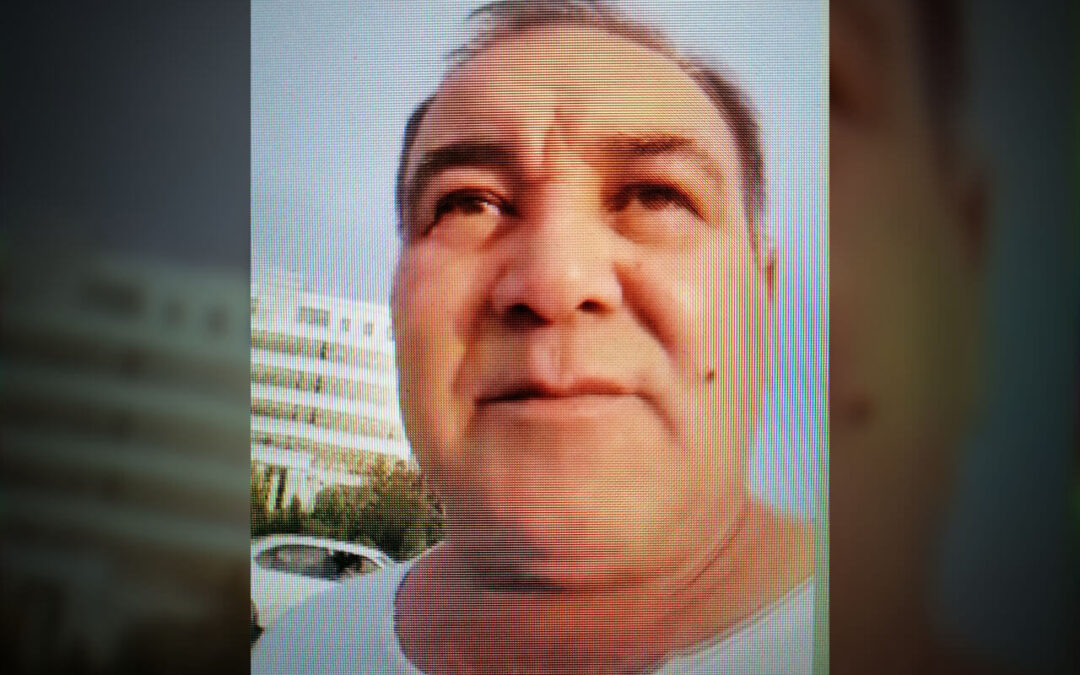
Sep 14, 2020 | News
Today, the ICJ called on Turkmenistan to comply with its international legal obligations to release detained lawyer Pygamberdy Allaberdyev, who is alleged to be arbitrarily detained, or to charge him with a cognizable crime consistent with international human rights law.
Allaberdyev, who has been denied access to his lawyer, should be provided access to the lawyer hired by his family and should have access to family members. He should be sufficiently informed about any charges against him which justify his arrest and should be provided with medication, food and other necessities which may be necessary to protect his right to life and health.
According to the Russian-based Memorial Human Rights Centre, on 5 September at about 7 pm, Pybamberdy Allaberdyev and another person were leaving a grocery store, when an unknown young man unexpectedly approached began a verbal skirmish, then grabbed Allaberdiev by the collar. Almost immediately, police officers appeared and the attacker pointed to the lawyer as the instigator of the conflict, after which he left. This conflict is believed to be staged as a justification to detain the lawyer.
Allaberdiev was taken to the police station, where the attacker came with a bandaged hand 20 minutes later. Soon after, Ministry of National Security officers from Ashgabat came to the police station, and accused Allaberdiyev of having links with activists of the Turkmenistan protest movement based abroad. He was interrogated without a lawyer and his house was searched. Family members have sought to provide him with needed medicine and food, but were said to have been prevented by the authorities from doing so.
On 8 September, the Prosecutor’s Office issued an arrest warrant against Allaberdyev. He is charged with crimes under Article 108 (intentional harm to health of moderate severity) and 279 (hooliganism) of the Criminal Code of Turkmenistan. Allberdyev never appeared before the court, as it is the Prosecutor’s Office which authorizes arrest warrants in Turkmenistan, a practice which is contrary to Article 9(3) of the International Covenant on Civil and Political Rights (ICCPR), to which Turkmenistan is a party.
The arrest of Pybamberdy Allaberdyev is suspected to be related to his alleged links or discussions with Turkmen activists living outside Turkmenistan who protested against upcoming constitutional amendments. The ICJ is concerned that these charges are arbitrary and in violation of his rights to freedom of association and freedom of expression, protected under the ICCPR, to which Turkmenistan is a party.
The ICJ recalls that, under the UN Basic Principles on the role of lawyers, “Lawyers like other citizens are entitled to freedom of expression, belief, association and assembly. In particular, they shall have the right to take part in public discussion of matters concerning the law, the administration of justice and the promotion and protection of human rights and to join or form local, national or international organizations and attend their meetings, without suffering professional restrictions by reason of their lawful action or their membership in a lawful organization” (Principle 23).
Under the ICCPR, Turkmenistan is also bound to respect the rights to liberty and to fair trial. Under Article 9(3) of the ICCPR, anyone arrested or detained on a criminal charge shall be brought promptly before a judge or other officer authorized by law to exercise judicial power and shall be entitled to trial within a reasonable time or to release. A Prosecutor, as representative for a party to the case, cannot be such an officer.
In this connection, the ICJ stresses that the right of access to qualified legal representation is crucial for the protection of the human rights of those arrested.
Background:
The Republic of Turkmenistan acceded to the International Covenant on Civil and Political Rights in 1997.
On 19 August 2020, the Constitutional Commission for the development and consolidation of proposals in connection with the introduction of amendments and additions to the Constitution of Turkmenistan completed work on draft amendments to the Constitution. Under the draft amendments, a bicameral parliament, the National Council, would be established, with Khalk Maslakhaty (People’s Council) and the Mejlis (Assembly) being its higher and lower chambers respectively. Under the new amendments, former Presidents of Turkmenistan acquire membership in Khalk Maslakhaty for life.
On 7 September 2020, the Moscow-based Memorial Human Rights Center and the Turkmen Helsinki Foundation issued a statement about the detention of Pygamberdy Allaberdyev, a lawyer at a State oil company, by the police.
On August 2020, a number of Turkmen activists based abroad organized protests against the constitutional amendments and the lack of response of the State to the COVID-19 pandemic in Turkmenistan.
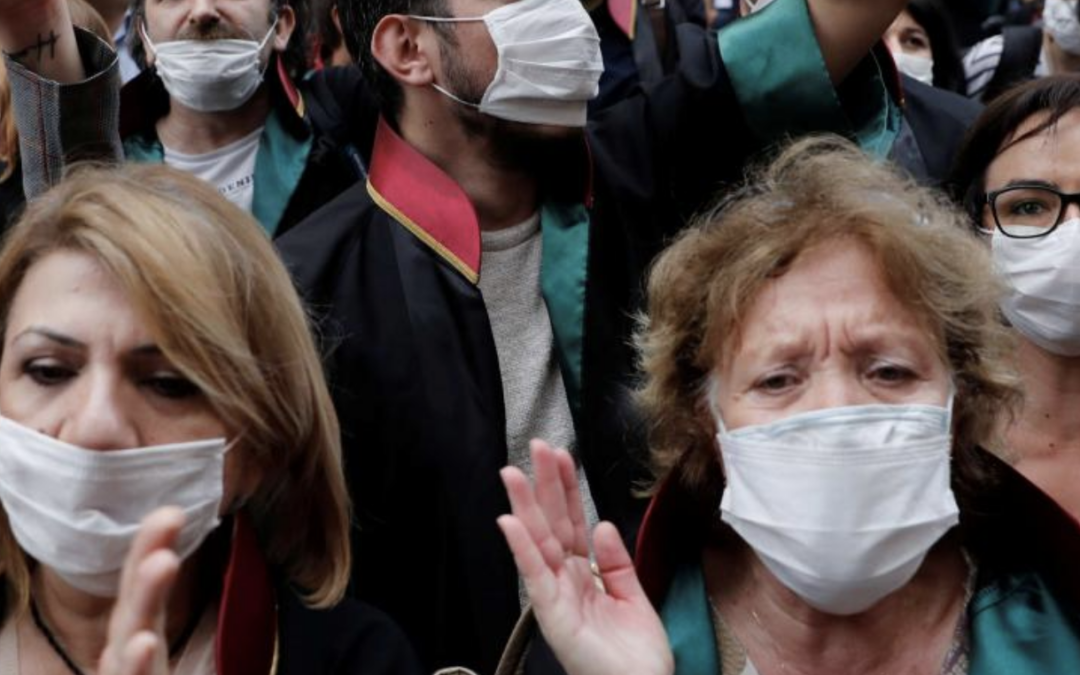
Sep 14, 2020 | News
The ICJ expressed today its deep concern at the arrest order of some 60 lawyers in Turkey on grounds allegedly linked to the representation of their clients, in breach of Turkey’s international law obligations.
The ICJ understands that around 47 lawyers have been arrested on 11 September in Turkey while 13 others are being searched by police for allegedly acting on behalf of clients accused of participation in the Gülenist movement, called by Turkish authorities the “Fetullahist Terrorist Organisation” (FETO). It has been reported that lawyers were interrogated about their professional activities.
“Lawyers should never be arrested or sanctioned for representing their clients, or identified with their clients causes,” said Roisin Pillay, Director of the ICJ Europe and Central Asia Programme,
“This is a basic principle of the independence of the legal profession and international law and its respect is essential to ensure that everyone has the right to a fair trial.”
The ICJ will follow the case closely to ensure that international law and standards are respected concerning any action against the lawyers arrested.
“If the sole charges against the lawyers arrested are related to their work as lawyers representing their clients, they should be immediately released,” added Roisin Pillay.
The ICJ stressed that they should not be subject to arrest for the legitimate exercise of any human rights and fundamental freedoms. In the event that any of them are subject to charges for cognizable crime consistent with Turkish and international law, they must be brought immediately before a court to consider whether any continued detention is lawful. If charged, they must be in ensured all rights of fair trial by independent and impartial courts.
The UN Basic Principles on the Role of Lawyers say that “lawyers shall not be identified with their clients or their clients’ causes as a result of discharging their functions” (article 18).
Contact:
Roisin Pillay, e: roisin.pillay(a)icj.org
Massimo Frigo, e: massimo.frigo(a)icj.org – t: +41797499949
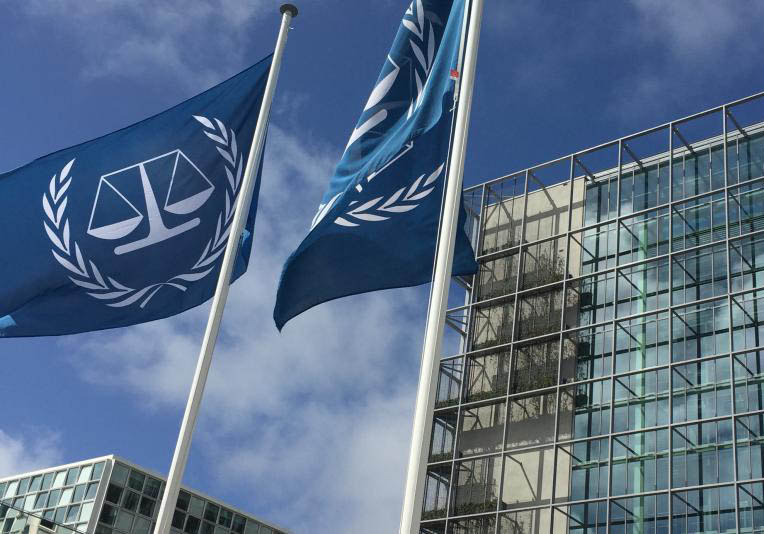
Sep 7, 2020 | News
Ongoing attacks by United States officials on the International Criminal Court (ICC) and its staff amount to a full-frontal assault on international justice and the rule of law, said the ICJ, today.
On 2 September 2020, the US Secretary of State, Michael Pompeo, describing the ICC as a “thoroughly broken and corrupted institution,” indicated that the US would place on sanctions on ICC Prosecutor Fatou Bensouda, and the ICC’s Head of Jurisdiction, Complementary, and Cooperation Division, Phakiso Mochochoko, “for having materially assisted Prosecutor Bensouda” pursuant to the President’s 11 June 2020 Executive Order.
“The US must end these despicable and destabilizing attempts to interfere with the independence of the ICC and the functioning of its mandate to pursue justice for victims of the most serious crimes under international law,” said Kingsley Abbott, Coordinator of the ICJ’s Global Accountability Initiative.
“It is imperative that the 123 countries that are States Parties to the Rome Statute continue to work in solidarity to defend the Court and show the world that even individuals from a global superpower are subject to the rule of law.”
“Retaliating against individual ICC staff for merely working to fulfill the mandate of the Court sets a dangerous precedent and must be condemned specifically in the strongest possible terms,” added Abbott.
Background
On 21 September 2018, the ICJ, together with ten other organisations, sent a joint letter to UN Special Procedures regarding threats made by the then US National Security Adviser, John Bolton, against the ICC and its staff.
On 22 March 2019, the UN Special Rapporteur on the situation of human rights defenders, Michel Forst, and the Special Rapporteur on the Independence of Judges and Lawyers, Diego García-Sayán, issued a press release expressing concern at Bolton’s remarks, reaffirming the important mandate of the ICC and saying they were in contact with the US authorities on the issue.
On 11 June 2020, the ICC issued a statement expressing “profound regret at the announcement of further threats and coercive actions, including financial measures, against the Court and its officials, made earlier today by the Government of the United States.” The Court said the US action “represents an attack against the interests of victims of atrocity crimes, for many of whom the Court represents the last hope for justice.”
On 18 June 2020, the ICJ urged the United Nations Human Rights Council’s Special Procedures to act in response to steps taken by the United States against staff of the International Criminal Court (ICC) and their families.
On 25 June 2020, UN Human Rights Special Procedures experts issued a statement condemning US attacks on the ICC and its staff saying they “have been in contact with the US authorities on the issues.”
On 2 September 2020, the ICC issued a statement condemning the economic sanctions imposed on the Prosecutor and Phakiso Mochochoko, saying that the attacks “are unprecedented and constitute serious attacks against the Court, the Rome Statute system of international criminal justice, and the rule of law more generally.”
Contact
Kingsley Abbott, Coordinator of the ICJ’s Global Accountability Initiative, t: +66 94 470 1345; e: kingsley.abbott(a)icj.org
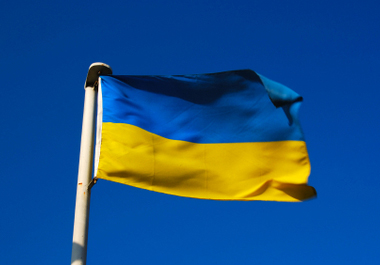
Sep 2, 2020 | Advocacy, Non-legal submissions
The ICJ has made submissions to the Human Rights Committee, today, on Ukraine’s implementation of, and compliance with, the provisions of the International Covenant on Civil and Political Rights.
The ICJ broughtto the Committee’s attention some issues of concern pertaining to Ukraine’s compliance with and implementation of the ICCPR.
This submission highlights a number of concerns relating to the security and independence of lawyers in Ukraine, and their consequences for the protection of certain Covenant rights. In particular, this submission addresses:
- the institutional independence of the legal profession;
- security of lawyers and their right to life;
- restrictions on access to clients and the rights of the defence; and
- security of lawyers and access to justice in uncontrolled territories in Ukraine.
These concerns highlight Ukraine’s lack of compliance with its obligations under the Covenant, including in respect of the right to life under article 6 and the right to a fair trial under article 14, in particular, as well as under other Covenant rights, such as Ukraine’s obligations under articles 2, 7, 9, 10, and 17 of the ICCPR.
Ukraine-ICJ-Submission-CCPR-Advocacy-Non-Legal-Submissions-2020-ENG









